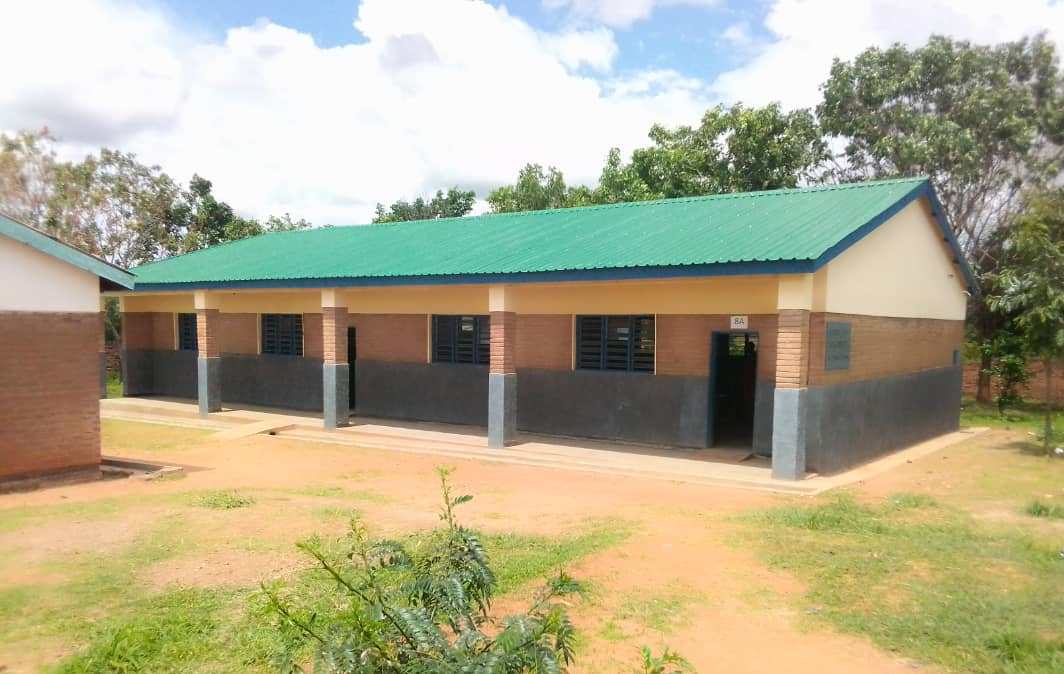
St Joseph’s primary school, Kasungu, Malawi.
Back in 2010, the first classroom blocks were built for the local children surrounding St Joseph’s parish in Kasungu, Malawi. The school was later handed over to the government, but the Society of Jesus remained the proprietor and opened on the 6th September. At the time of opening in 2010, the school only had 300 learners and 8 teachers. Back then, there were only five classrooms with a single stream. Today, the school accommodates 1,300 learners with 35 teachers, most of whom are women (25). Proudly, St Joseph catholic primary school is one of the best performing schools among the 14 schools in the zone of Kasungu.
The school suffers from overcrowding due to limited classrooms and the demand for school places as the location of the school is right at the centre of Kasungu and is surrounded by many villages with huge numbers of children seeking education. The school administration through the support of the Society of Jesus, applied for funding to construct a 1×2 classroom block that could accommodate about 40 pupils at a go and with support from IJI, a grant of €18,500 went to the construction of the 1×2 Classroom block.
Although the classroom block cannot fully address the overcrowding at the school, it will still go a long way to provide some relief to the pupils who can take turns to attend class and learn. The headmaster of the school, Mr. Jester Banda, spoke of the classroom project and how it has given wider learning opportunities to local communities: “the donation was a response to the call from the community on the need for extra space for pupils due to overcrowding and increased enrolment as a result of the desire by many parents to send their children to school.”
Although there is still a need for more classrooms and girls’ hostels as local children wish to study for brighter futures, the new classroom block will help teachers by way of teaching fewer children at a time in less crowded classes. The passion to learn and study is shown by St Joseph’s amazing results, this year 96% of ‘standard 8’ students passed their primary school leaving certificate exams. Additionally, 9 students got selected to national and district secondary schools and over 37 students also got selected to community day secondary schools.
Project coordinator Fr. Oderick Mweemba SJ, reflected on the project and the great passion from local children for education and learning. “The classrooms have come at a great time of need where there is increased enrolment and demand for school places”. He added that the school is “a stepping stone for a bright future for children and that when we get a conducive learning environment – the children will have a chance to go far with their education”.
One of the pupils, Chifundo Mbewe aged 13 who is in standard 8, thanked the Jesuits for constructing the new classrooms, in her words:
“the situation in the past was very bad where pupils were fighting for learning space in the classrooms. This affected our concentration during lessons, but with the new block we believe that our performance will also improve.”
Group village headman, Juma also thanked Irish Jesuits International for the school project expressing huge gratitude for the education of local children, including the construction of Loyola Jesuit Secondary school in the area in 2016.
The recent classroom expansion of St Joseph’s primary school means improving the quality of education for the local children who have shown such dedication over the years to study and enrich their futures. The chair of the School Management Committee and Parents and Teacher Association thanked the Society of Jesus, in particular Fr Sebastian Malambo SJ and Fr Oderick Mweemba SJ for their ongoing support and thanked IJI too, expressing the positive impact of the building project on future student learning and the hope that learners from St. Joseph catholic primary school will continue with their secondary education at Loyola Jesuit secondary school continuing those vital stepping stones to brighter futures.
All of this could not be possible without your ongoing support and for that we thank you.
Author: Norbert Tembo, Development Officer of the Zambia – Malawi Country Office.

